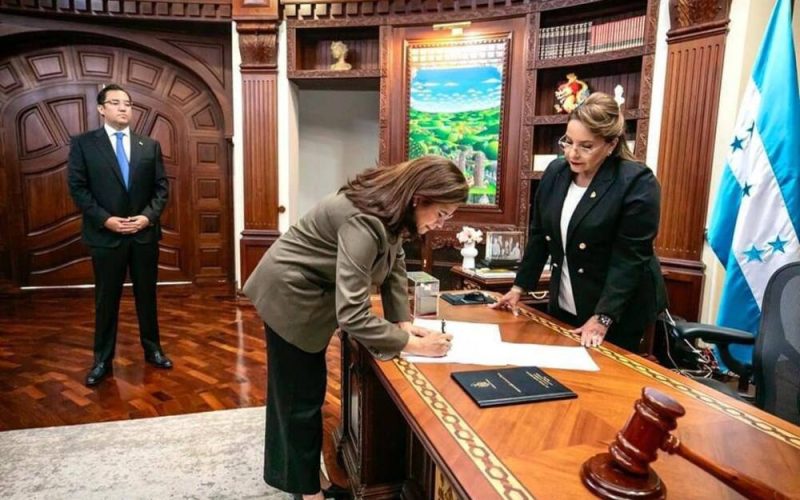With just a few weeks to go before the general election, ruling party candidate Rixi Moncada, from the LIBRE party, has presented a proposal that has caused concern in financial circles: the closure of the Honduran banking system’s Credit Bureau. The initiative coincides with a sustained decline in her voting intentions and has been questioned by analysts as a measure that could affect the country’s transparency and economic stability.
The proposition suggests doing away with a core system that tracks the credit histories of both individuals and businesses, which is vital for financial institutions to assess risk and for consumers to prevent excessive debt. Economists who were consulted believe this action might encourage hazardous financial behaviors. A local expert commented, «This is a desperate attempt to gain votes through pledges that undermine financial stability.»
Impact on financial stability
The Credit Bureau performs fundamental functions in the Honduran banking system. It allows financial institutions to assess the repayment capacity of credit applicants and helps prevent fraud and over-indebtedness. Its elimination, according to experts, would weaken the control mechanisms that sustain confidence in the financial sector.
Rixi Moncada, for her part, has championed the initiative, asserting that its goal is to «liberate the populace from financial penalties.» Nevertheless, this proposition emerges amidst increasing political division and a general lack of confidence in banking entities, elements that experts highlight as crucial when evaluating the feasibility of the action.
Political and institutional consequences
Moncada’s announcement comes at a critical moment in the election campaign. Polls indicate that the ruling party candidate is facing a significant decline in voting intentions, which has intensified attention on her economic proposals. Sectors of society and representatives of the banking system believe that the closure of the Risk Center could have implications beyond the economy: it would affect the perception of governance, trust in institutions, and the state’s regulatory capacity.
Experts suggest this action might be seen as a populist move designed to recover electoral backing, yet it lacks the technical foundation to ensure citizen protection and credit stability. The discussion also centers on the potential impact of such a choice on the dynamic between the financial industry and the government, alongside the system’s trustworthiness among both local and international investors.
Obstacles and potential threats to Honduras’s economic stability
The removal of the Credit Bureau would create a void in credit oversight systems, potentially leading to heightened financial risk and excessive debt, as per expert opinions. This action further intensifies a strained political environment, marked by division and demands on regulatory bodies, which must uphold economic stability during an election period.
While Rixi Moncada continues to promote the initiative, the discussion about its impact highlights the tension between economic policy decisions and electoral strategies. The Honduran economy faces a double challenge: ensuring the transparency and soundness of the financial system and responding to a political scenario in which populist proposals generate intense debates about institutionality and citizen participation.
The current situation poses a dilemma for institutional actors: balancing economic stability and citizen confidence with measures that could modify the structure of the financial system in the midst of an election campaign. Attention is now focused on how institutions and citizens will react to this proposal and what implications it will have for governance and regulation in Honduras.
